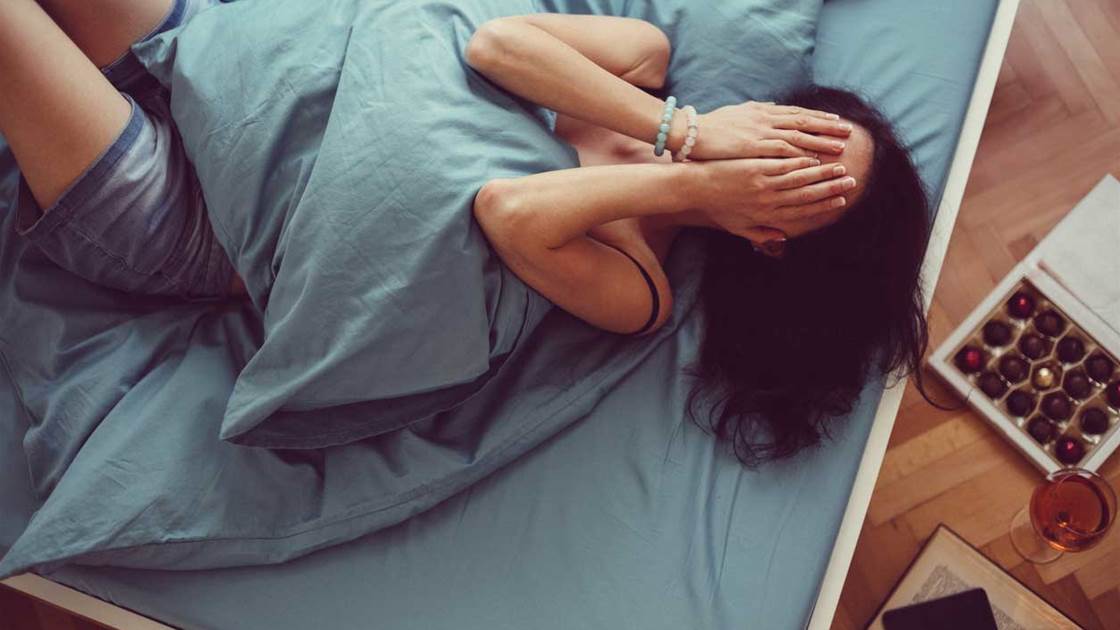There are plenty of alleged ways to cure a hangover... and tips on the internet for stopping one in its tracks. You’ve likely heard hangover cures involving “the hair of the dog that bit you,” or that greasy food might “soak up the alcohol”, but are those really the recommendations based in science? We asked doctors to help us separate fact from fiction.
Myth: Beer before liquor, never been sicker
Mythbuster
No matter how catchy the rhyme, it’s the quantity you drink, and how fast you drink it, that matters, not the order of consumption, says internal medicine specialist Dr Keri Peterson.
Any “standard drink”, whether it is 375ml of mid-strength beer, a small 100ml glass of red wine, or 30ml of spirits, contains about the same amount of alcohol.
It is true, though, that lighter-colored alcoholic beverages may lead to fewer hangovers, as they contain fewer congeners (compounds that research shows contribute to hangovers). But as anybody who’s had one too many G&Ts can attest, “drinking too many alcoholic beverages of any colour will still leave you feeling hung over,” says Dr Peterson, whether you start with spirits and then move to wine or beer or do the reverse.
Myth: The hair of the dog that bit you will set you right
Mythbuster
A morning-after Bloody Mary is a temporary solution that will probably make things worse later on, says alcohol researcher John Brick. That’s because hangover symptoms kick in as your blood alcohol level drops, and you feel your worst when none is left in your system, says Dr Peterson.
This means that after you metabolise the Bloody Mary, the hangover will come roaring back. Dehydration can also contribute to a hangover, and next-day drinking could cause greater loss of water and electrolytes, Brick says. To recover, drink water or sports drinks and eat something bland and easily digestible, like toast with jam. Also, “some gentle exercise will flood cells with oxygen and release mood- boosting endorphins,” Dr Peterson adds.
Myth: Pop a pain reliever before bed to feel better the next day
Mythbuster
Taking a pain reliever before you have a hangover won’t help much. The effect of ibuprofen, for example, peaks after one or two hours, the FDA reports, and if you go to bed drunk there will be no pain to alleviate, says Brick. He also points out that the effect will have largely worn off by the time you wake up.
Another reason to wait is that an OTC pain reliever might irritate an already upset stomach. Still, these drugs are useful; once you have a hangover, they can help ease headaches and achiness.
One you should steer clear of, though, is paracetamol as it “ places an extra burden on the liver, and high doses, in combination with alcohol, may increase the risk of liver damage,” Brick says.
Myth: Sulfites cause red wine hangovers
Mythbuster
Sensitivity to sulfites is relatively rare. These preservatives in wine, beer, prawns, potatoes, and dried fruit have long been blamed for the dreaded “red wine headache,” but it's not as common as you may think. It's more common in people with asthma and around 5-10% of them experience it.
A new UC Davis study suggests a different culprit in wine; a naturally occurring polyphenol called quercetin. When ingested in alcohol, quercetin can cause a buildup of the toxin acetaldehyde, which interferes with how the body metabolises alcohol.
“The buildup of acetaldehyde or other chemicals may be a factor in hangovers,” Brick says. High levels of acetaldehyde cause familiar hangover symptoms like headache, flushing and nausea.
Hangovers are complex, with causes from dehydration to congeners to alcohol-disrupted sleep, Brick says, and for most drinkers, sulfites are probably not to blame.
Myth: If you eat greasy food, it can “soak up the alcohol”
Mythbuster
A post-party or 3am kebab stop might seem like a good idea, but greasy, fatty food can make a queasy stomach or heartburn even worse, Brick says. Food does slow the absorption of alcohol, but only if you start eating before you begin drinking.
“Drinking the same amount, you’ll become less intoxicated if you drink on a full stomach as opposed to with little or no food in your stomach,” he says.
Your best bet is to eat something hearty that contains fat, which takes longer to digest and “causes alcohol to be delivered to your bloodstream more slowly, giving it less of a chance to reach high levels,” Dr Peterson says.









